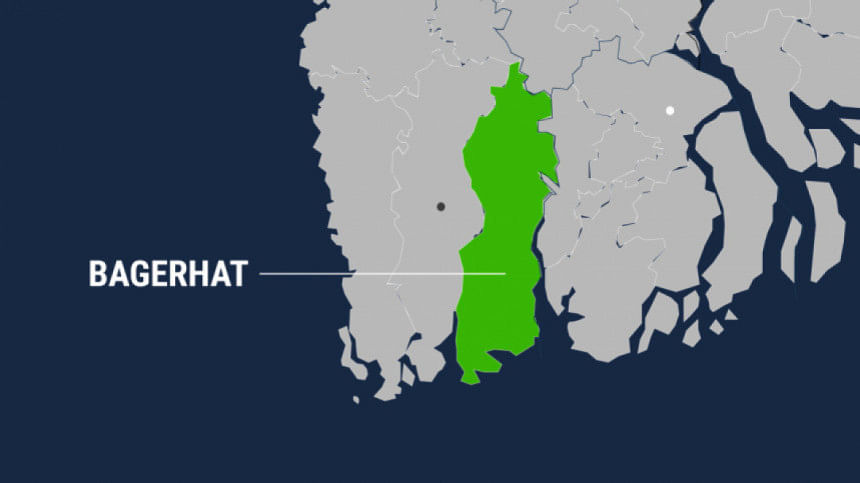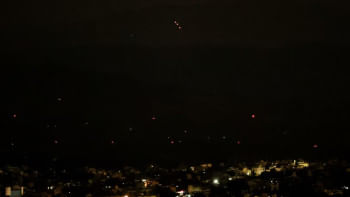Bagerhat Municipality: Residents suffer as water crisis worsens

The persistent crisis of water in Bagerhat Municipality has worsened in recent time, leaving the residents suffering immensely.
The municipal authorities have been unable to supply clean water adequately, prompting many residents to purchase bottled water for drinking and cooking.
According to municipal officials, Bagerhat town, with a population of nearly 1,25,000, requires approximately 8 lakh gallons of water daily. However, the daily supply has been only a little over 5 lakh gallons. As such, there has been a daily shortfall of nearly 3 lakh gallons, significantly impacting the daily lives of residents. Currently, only 60-65 percent of the town' s population has access to municipal water supply. As the warmer days have arrived, the situation is likely to worsen further throughout the summer due to power outages.
Moreover, the crisis has been compounded by the town's poor water distribution network. The aging water pipes are riddled with leakages, allowing drain runoff to contaminate the water. As a result, the water supplied to households is often malodourous and unsafe for consumption, leaving many residents with no choice but to buy bottled water for cooking and drinking.
The town's water is sourced from a deep tubewell in Shatgambuj union, pumped into overhead tanks in Dashani and Basabati Padmapukur areas before it is distributed.
However, only 6,550 residents are connected to the municipal water system, and many of them have been experiencing inconsistent supply and poor water quality. Only a selected few, including 135 freedom fighters, receive municipal water free of charge.
"The supply to my house gets disconnected every other day, and the water smells awful. I have to buy water for cooking and drinking since the supplied water is unusable," said Sabina, a resident of ward-3.
Echoing her, Monirul Haque of ward-7 said, "We never get clean water from the municipal supply. The water stinks and is unclean, and hence we can't use it for consumption."
Abed Ali, another resident, shared similar ordeal.
They demanded urgent intervention from the authorities concerned to resolve the crisis, and ensure stable supply of clean water to the residents through overhauling the existing infrastructure, including distribution network, and regular cleaning up of the water tanks.
Riyaz Sheikh, a junior worker at the Dashani Water Department, said the new water tank is not yet operational at present. Once it is functional, it could help mitigate the crisis, he added.
Contacted, TM Rezaul Haque Rizvi, assistant engineer of the municipality, acknowledged that the aging pipes have been causing leakage and contamination, and said immediate action is taken to repair leaks whenever reported, but the problem remains unresolved for.
He also informed that a Tk 40 crore project had been initiated to improve water supply and sanitation in the area. However, due to administrative delays, water from the proposed Panchadighi source has not yet been made available. As such, despite completion of the necessary infrastructure, water extraction has not commenced yet.
"The new water supply system includes around 45 kilometres of pipeline, five production tubewells, public toilets, a drainage system, a reservoir, a water treatment plant, an overhead reservoir, and three pump stations," he said.
Rizvi estimated that once the treatment plant becomes operational, daily water supply would increase by about 2 lakh gallons, benefiting a significant portion of the residents.

 For all latest news, follow The Daily Star's Google News channel.
For all latest news, follow The Daily Star's Google News channel. 



Comments